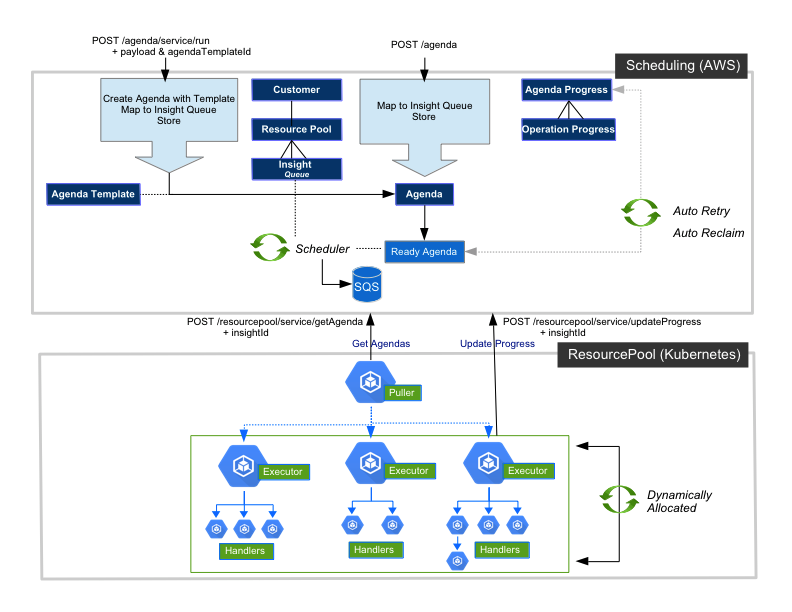-
A workflow orchestration system where the workflow is scheduled as a unit giving resource priority once selected
-
Priority queuing and customizable scheduling algorithms
-
Customer aware for multi-tenant
-
Authentication via AWS Authorizer
-
Data object visibility for allowed customers
-
A JSON DAG based blueprint defines the execution flow
-
Executes operations within a workflow by spinning up on-demand Kubernetes Pods (dynamic resource allocation)
-
API Gateway
-
AWS Authorizer
-
Lambda
-
SQS
-
Dynamo
-
CloudFormation
-
CloudWatch
-
Kubernetes
-
Kubernetes Annotations
-
Docker
-
Graphite
Workflow (Agenda) POP's workflow data model is called an Agenda.
-
Simple list of operations
-
Node Graph / DAG model
-
Variable referencing between operations
-
Non-strict API for inputs / outputs of each operation
-
Agenda decoupling from underlying execution technologies / APIs. Each operation has a JSON payload that adheres to the API of the POP Handler that will perform the op.
-
The Agenda Executor will immediately run an operation as long as dependency variables are met
-
The Agenda Executor will look up Docker image by operation type and spin up a new Kubernetes Pod for the operation
-
Supports different scheduling algorithms for work queues (FIFO, Fairness, Priority)
-
Queues are scheduled asynchronously, no more heavy calculations at the time work is requested
-
Queues are defined by Insights (key words / identifiers / key-value pairs)
-
Queue sizes are configurable
-
Dynamic spinning up of Pods with Docker Images
-
No strict schema registration for new POP Handlers
-
No zoning hassles
-
No account permissions per handler
-
Simple Docker image configuration for new Handlers
-
Kubernetes
-
Each POP Handler does one job
-
Handlers are spun up dynamically and control their CPU requirements for dependent Pods
-
Support for centers behind firewalls to have their own Kubernetes cluster do the content processing
-
Namespace segregation for customers wanting isolated resources within the same cluster
- Able to parallel process operations with no waiting dependencies.
For more information visit the wiki.
